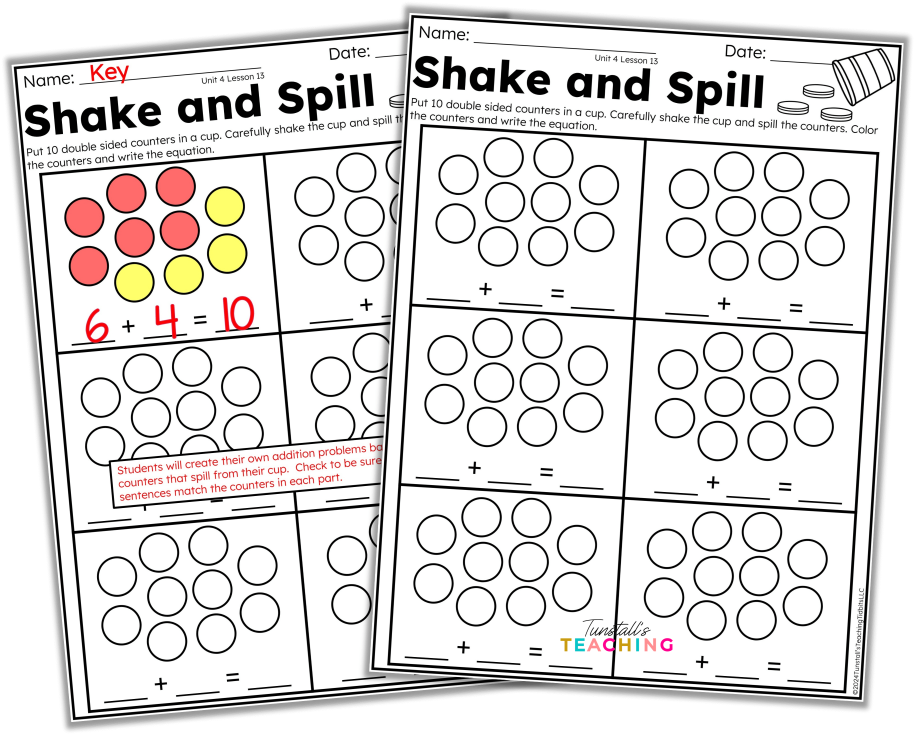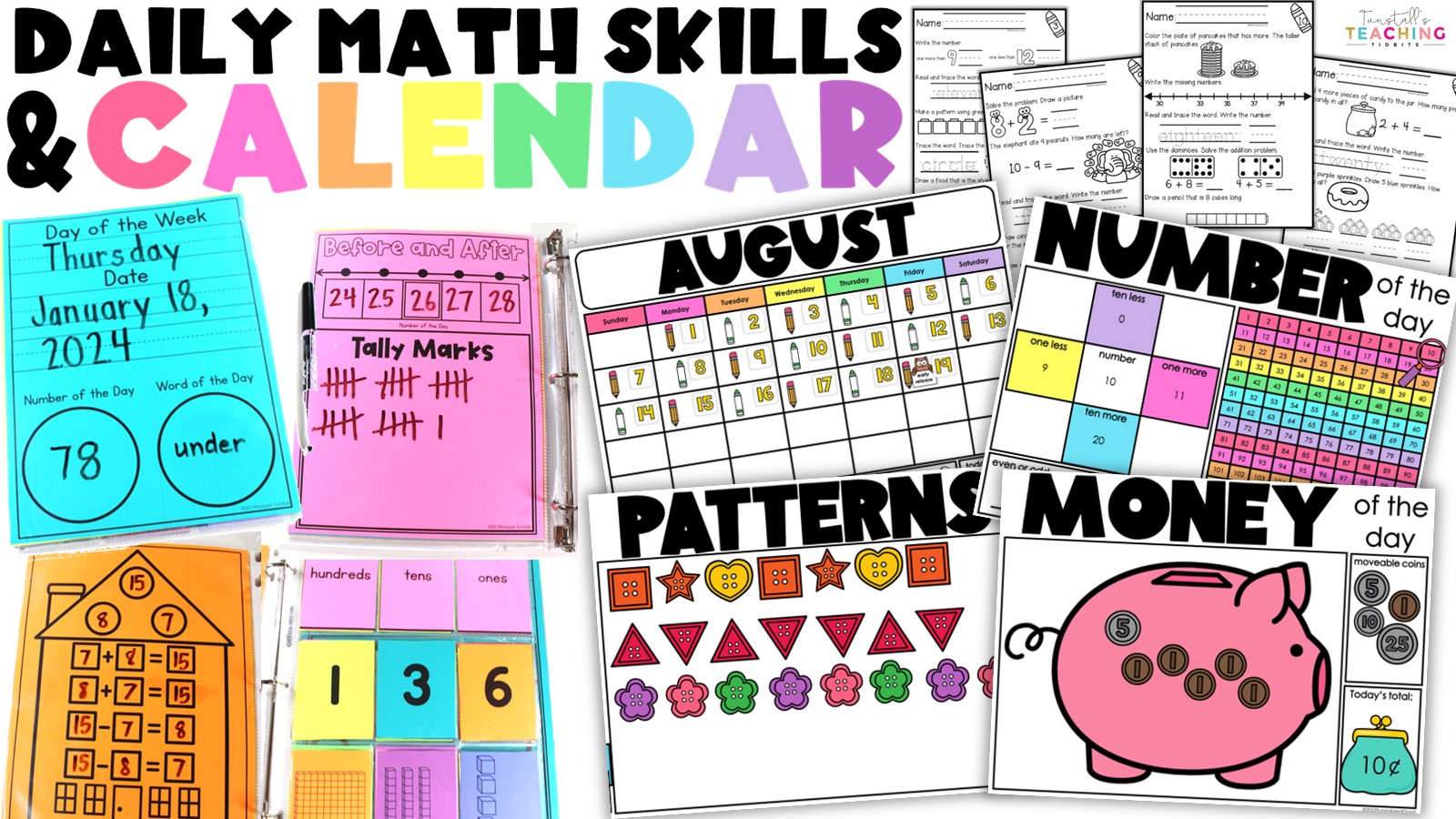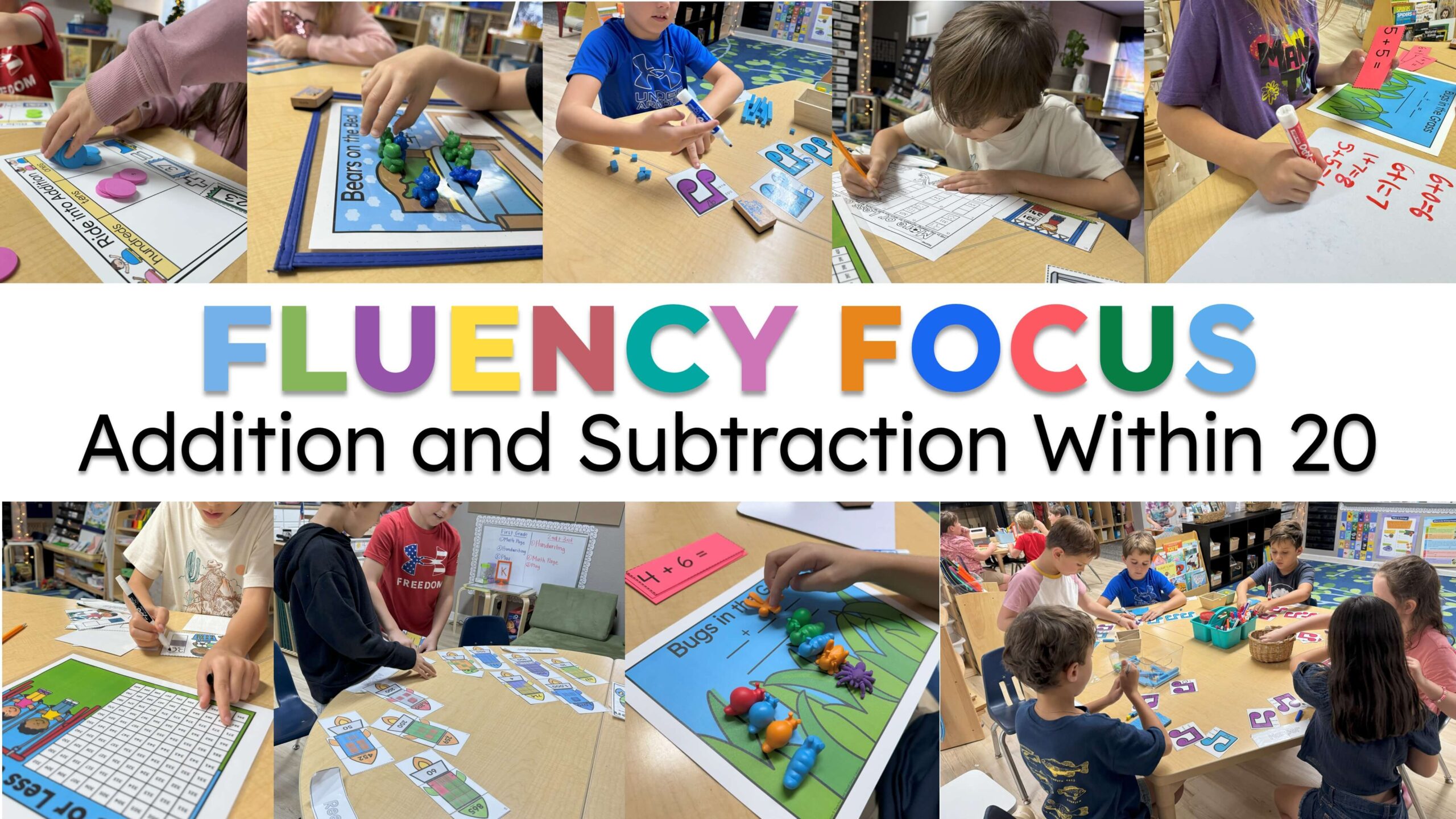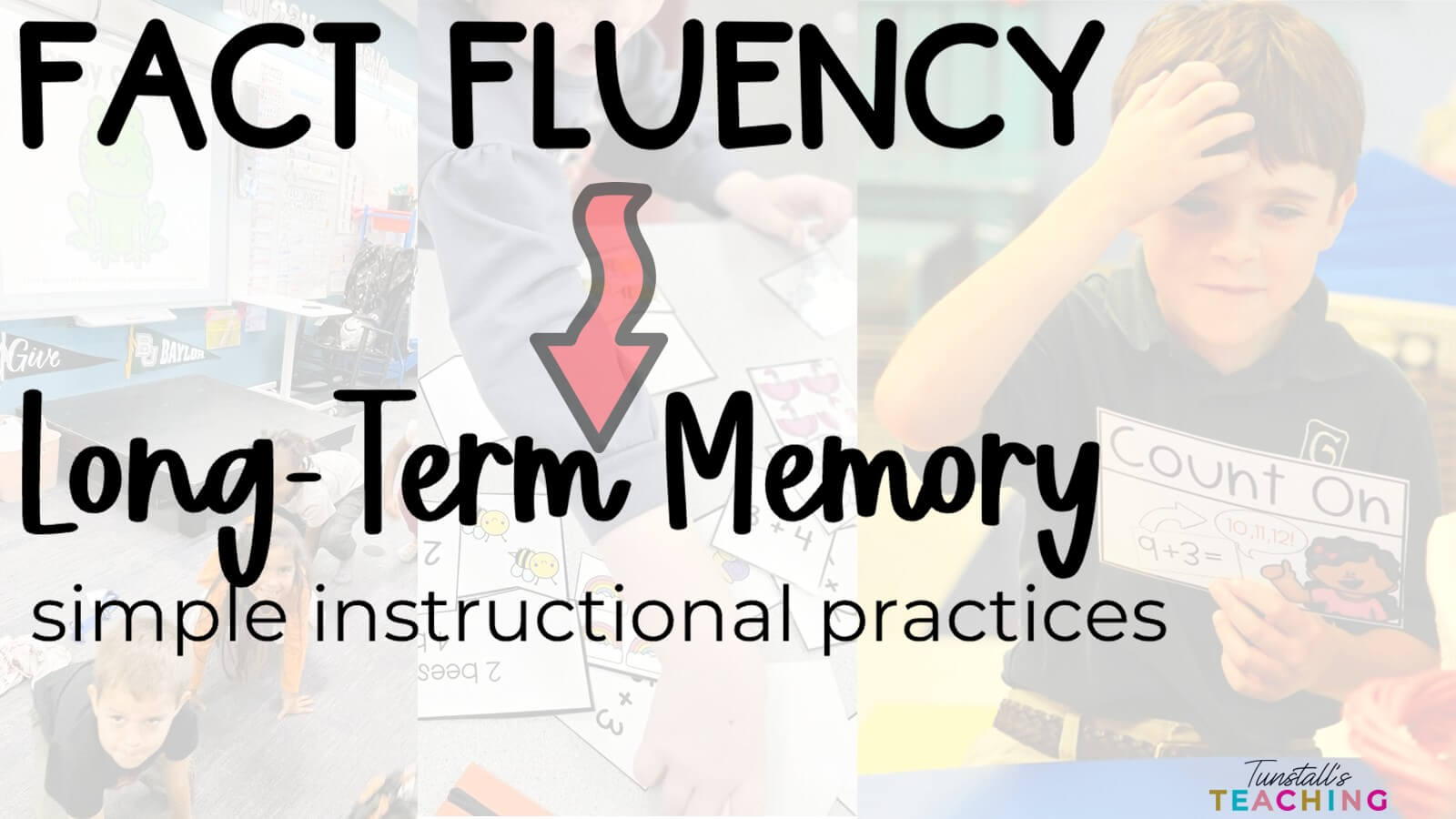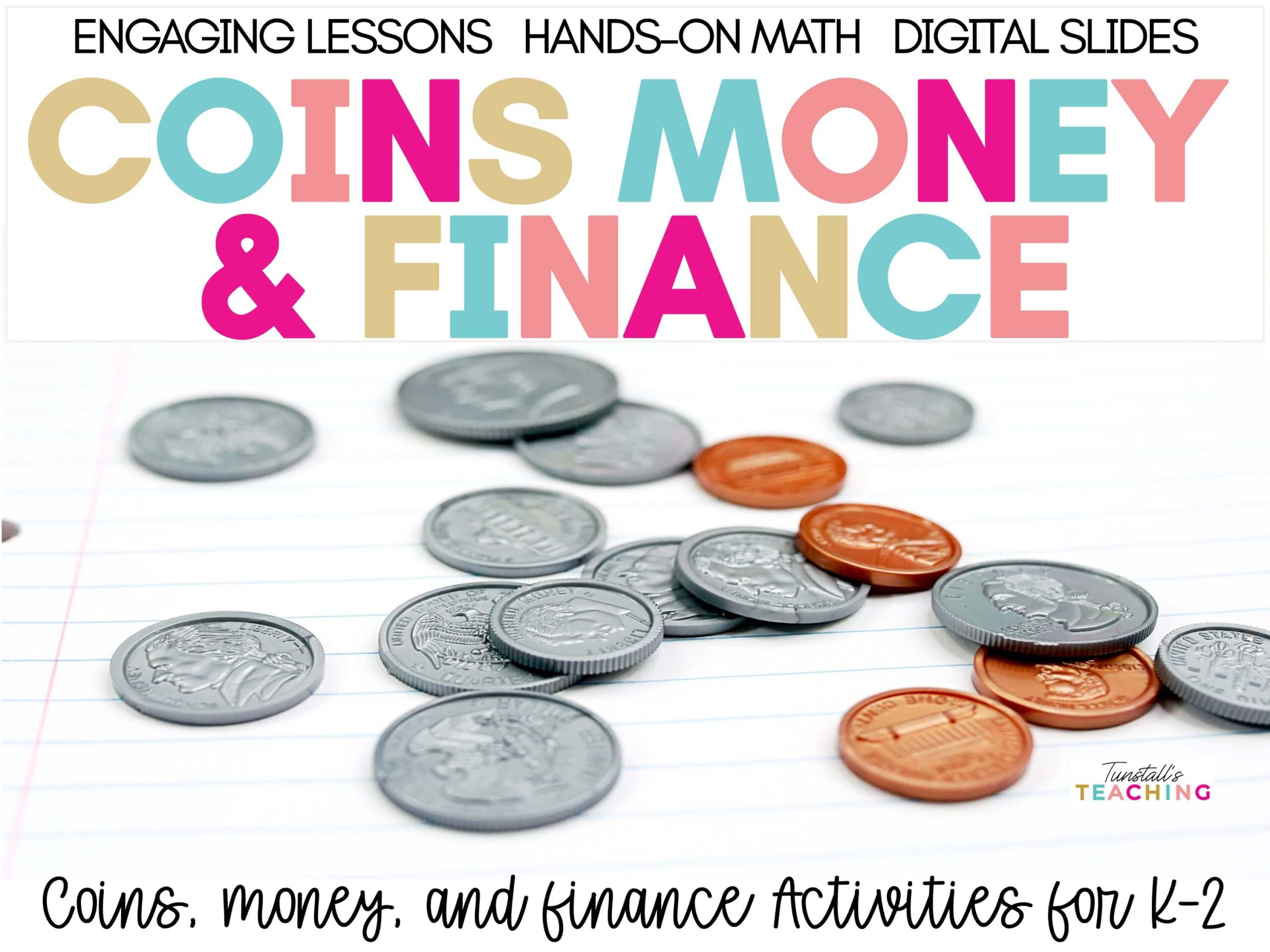Addition to 10 in Kindergarten: Strategies, Activities, and Resources
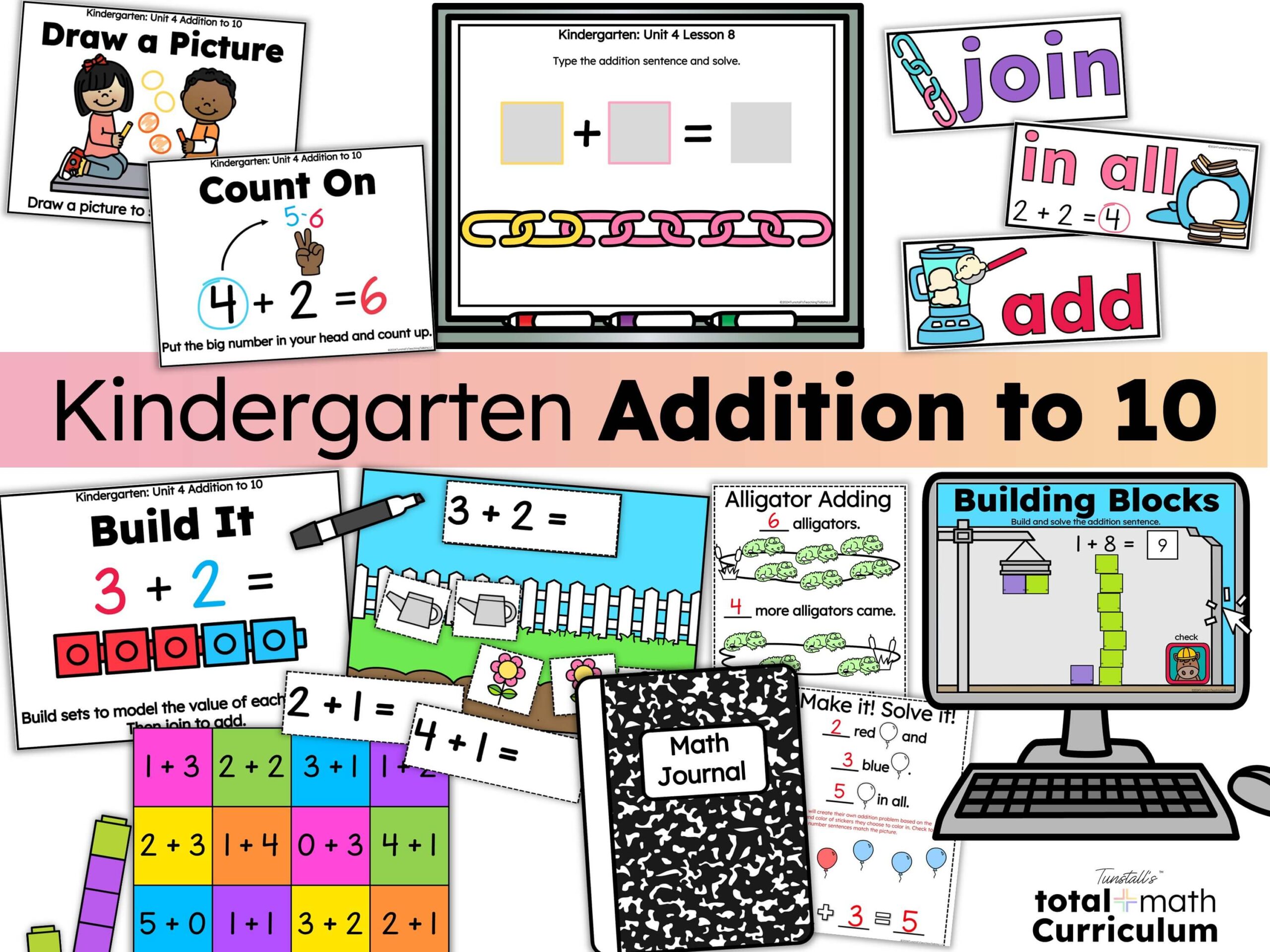
One of the biggest milestones in kindergarten math is learning how to add within 10. This foundational skill sets the stage for all future addition and subtraction, while also building confidence with numbers. The good news? With the right mix of structure, hands-on activities, and daily practice, addition to 10 doesn’t have to feel overwhelming for teachers or students.
In this post, I’ll share strategies, classroom routines, and must-have resources to help your students master addition facts to 10 in a way that is fun and achievable.
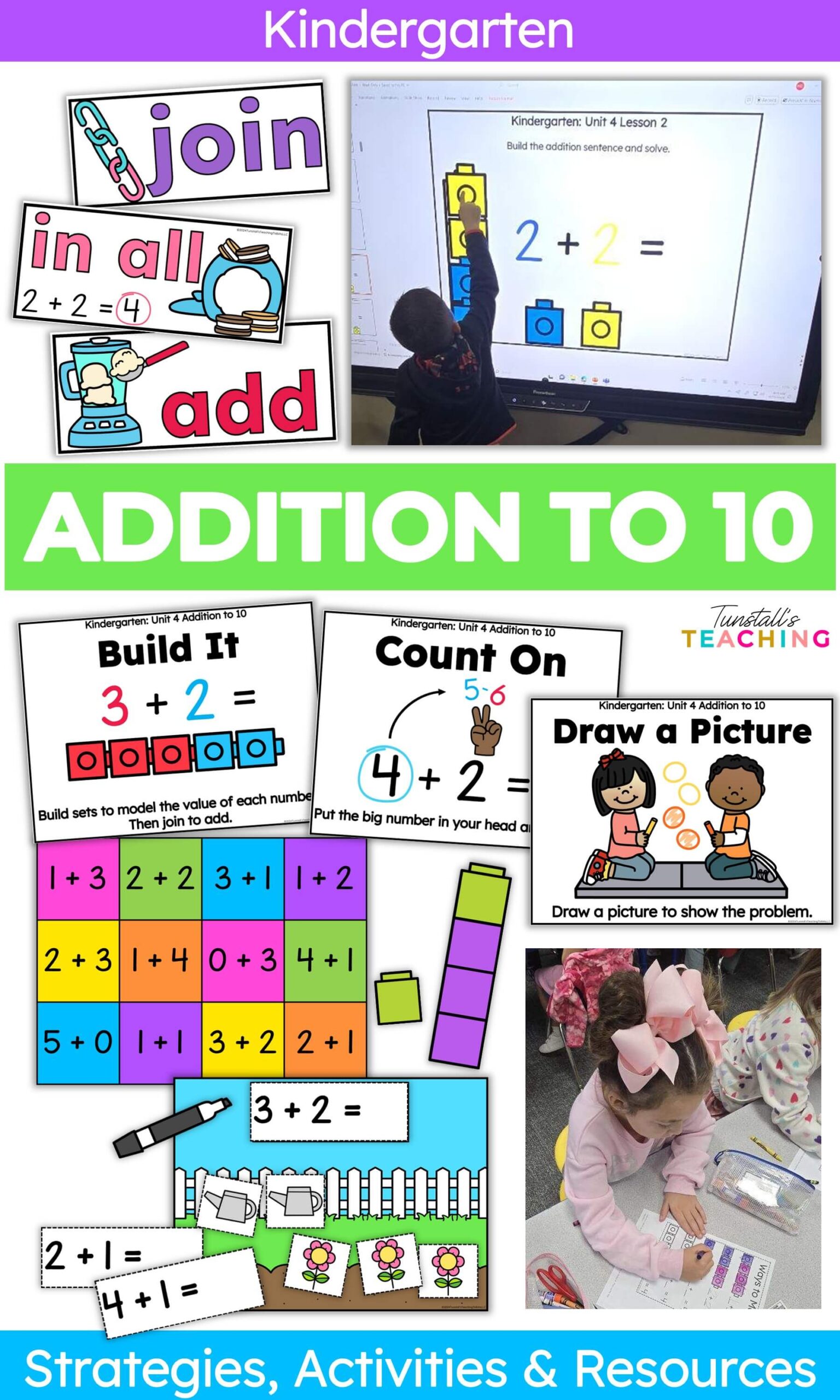
Why Addition to 10 Matters in Kindergarten
Addition to 10 is much more than memorizing facts. It’s about developing number sense, flexibility, and fluency. When students truly understand the combinations that make 10, they:
- Build mental math skills that carry into subtraction and higher numbers.
- Strengthen problem-solving and reasoning with equations and story problems.
- Gain confidence as mathematicians who can explain their thinking.
This unit is where students start to see themselves as real problem solvers, and that mindset shift makes a lasting impact.
Strategies for Teaching Addition to 10 in Kindergarten
Here are some tried and true strategies that make a difference in the kindergarten classroom:
1. Start With Concrete Models
Use manipulatives like counters, linking cubes, or ten frames. Students physically move objects into two groups to “see” how numbers combine.
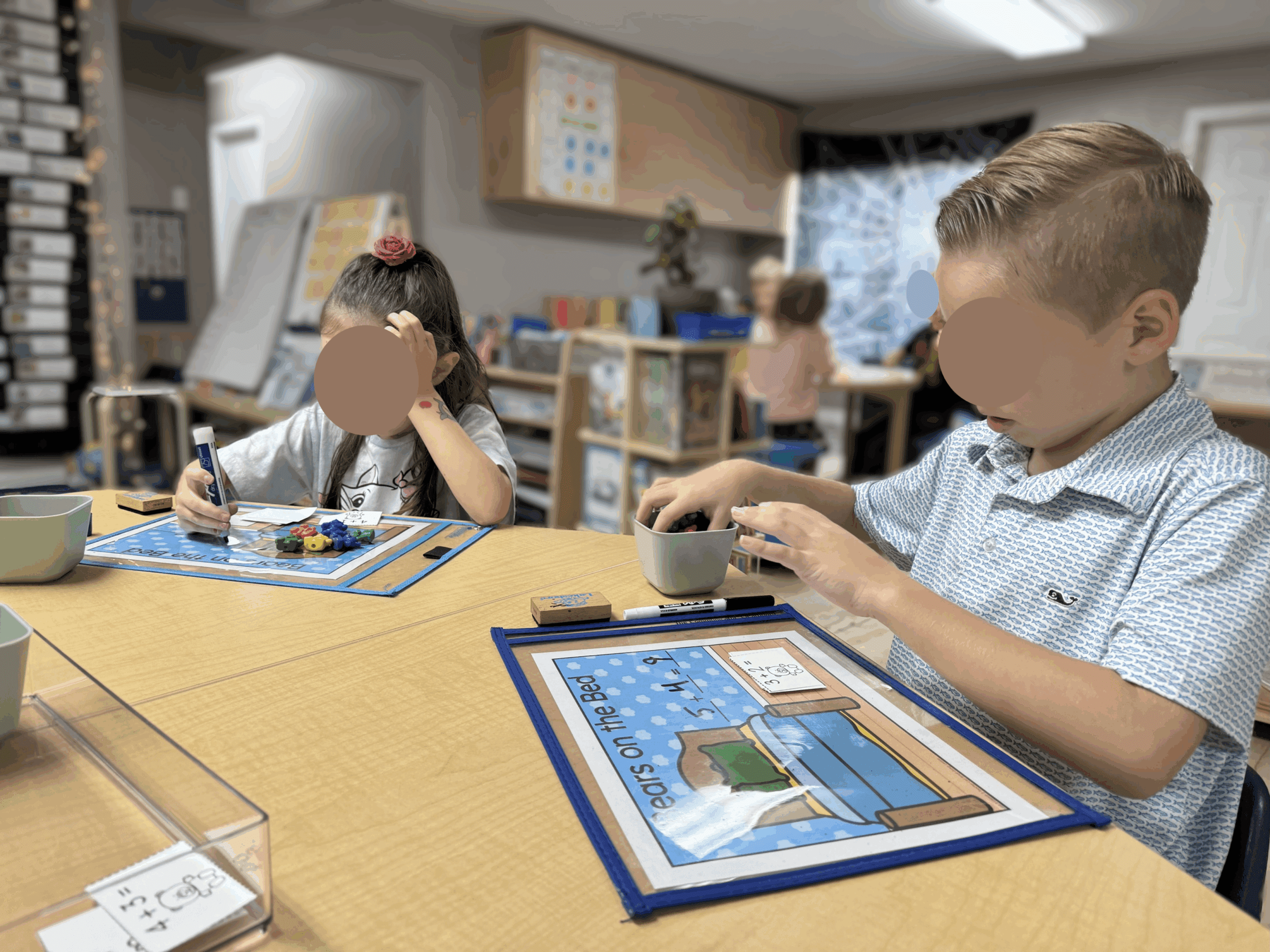
2. Use Visual Representations
Ten frames, number bonds, and part-part-whole mats give students a bridge between concrete manipulatives and abstract equations.
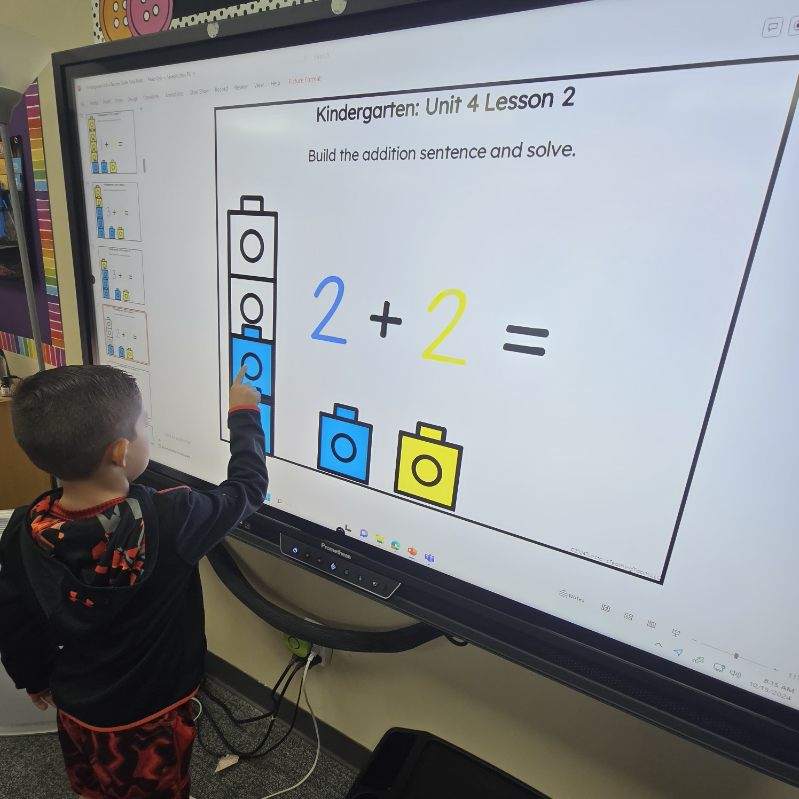
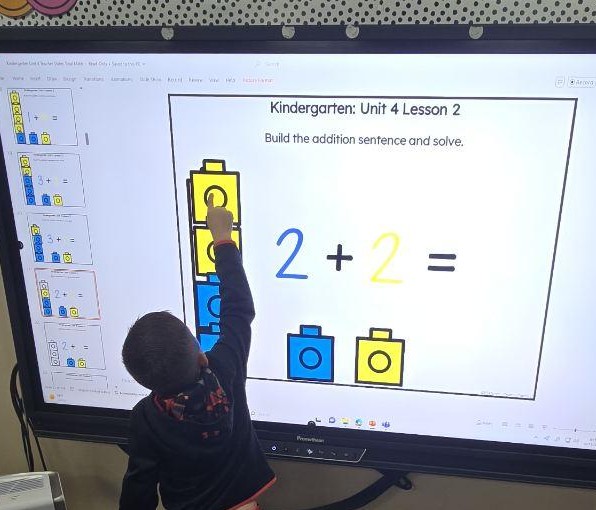
3. Emphasize the Combinations of 10
Practice fact fluency with quick drills, games, and songs that highlight pairs like 7+3, 6+4, and so on. Download this free Shake and Spill Activity!
4. Encourage Flexible Thinking
When students learn that 5+3 is the same as 3+5, or that 7+2 is just one more than 7+1, they begin to notice patterns and strategies that reduce cognitive load.
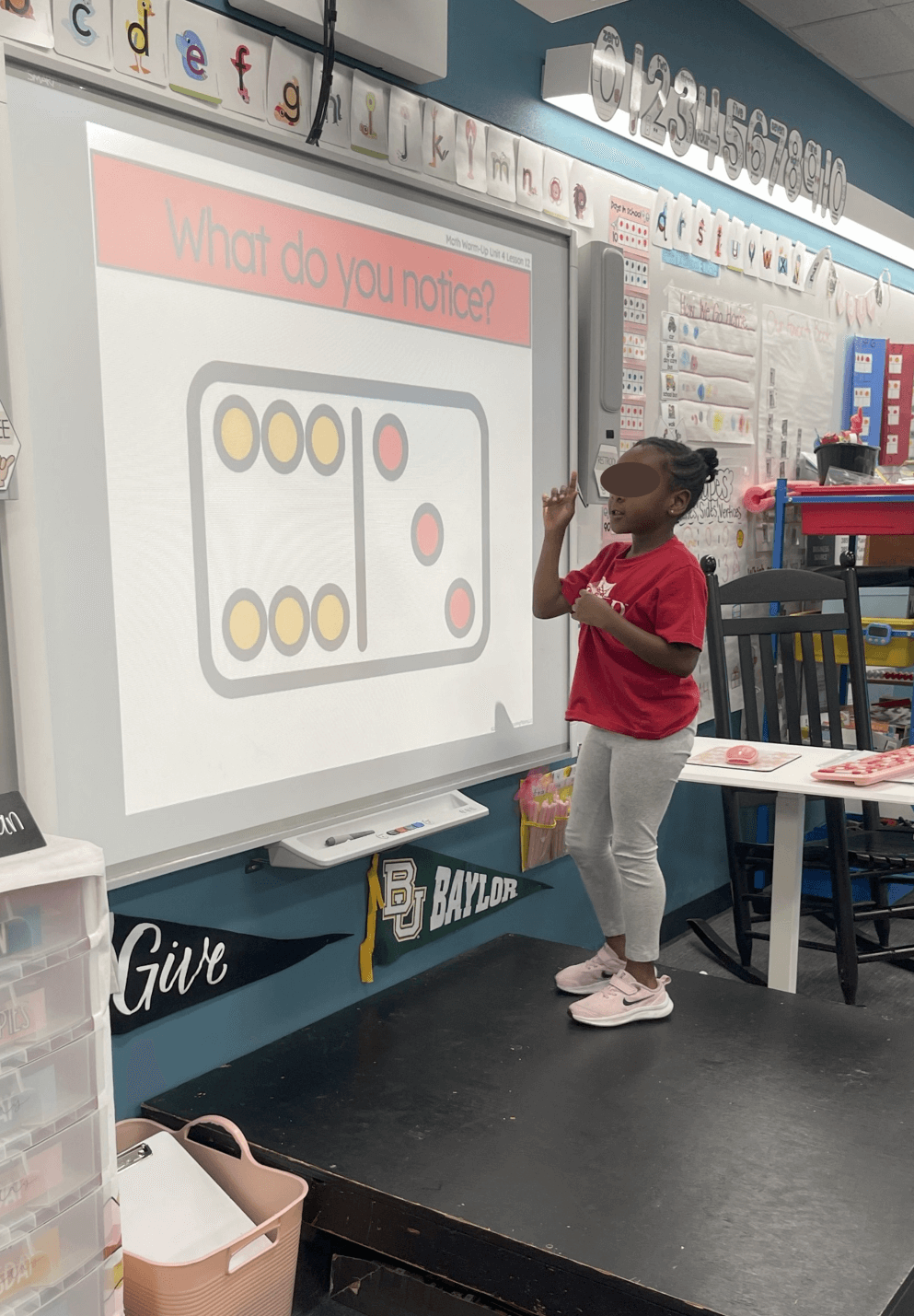

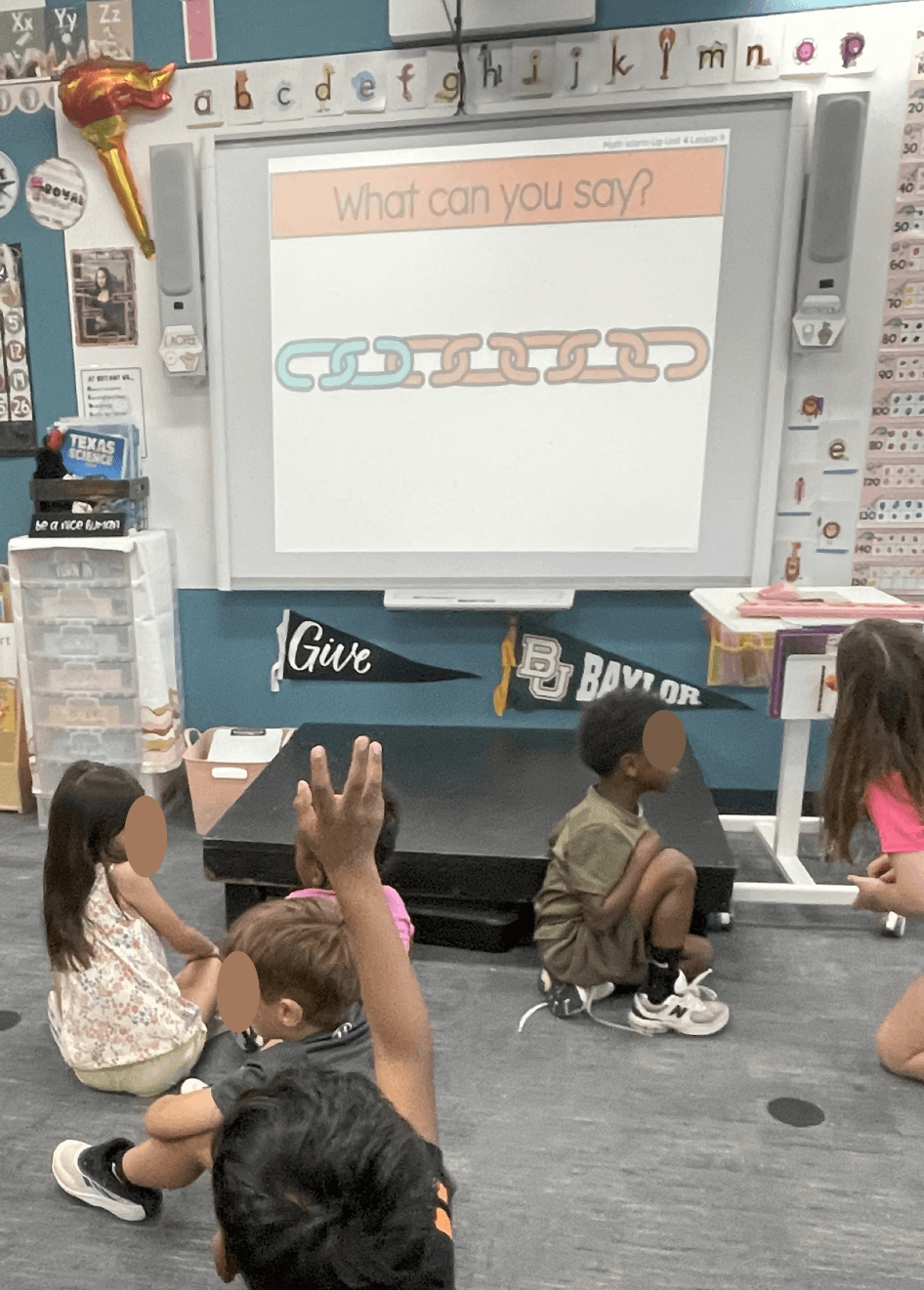
5. Make It Hands-On and Engaging
Stations, partner games, and technology activities keep the practice fresh and motivating.
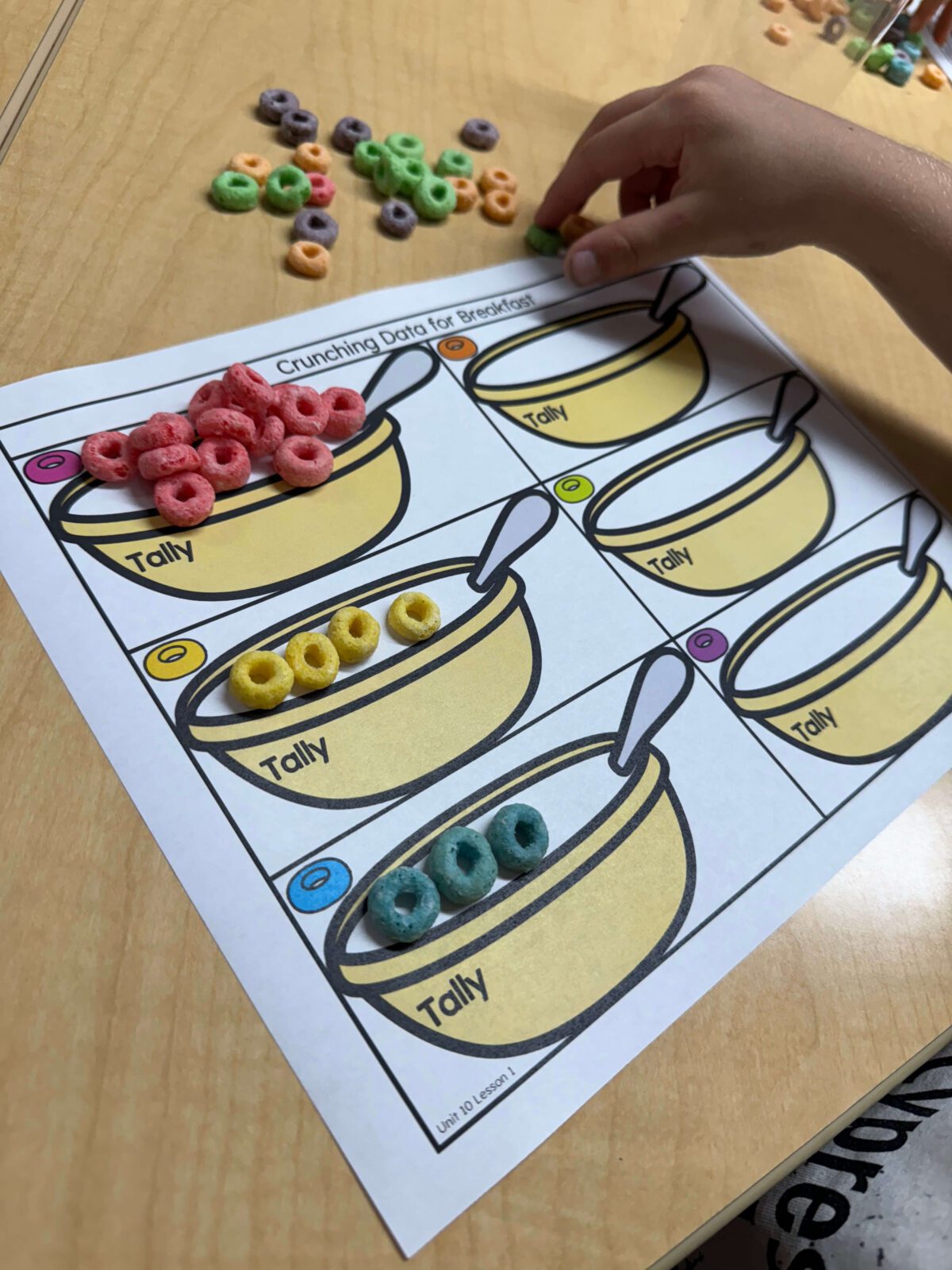
A Complete Resource for Addition to 10
If you’re looking for a way to bring all of these strategies together without spending hours planning, Unit 4: Addition to 10 from the Total Math Kindergarten Curriculum was designed with you in mind. Like you, we were tired of spending so much time searching for effective resources to teach math the way we know students learn best.
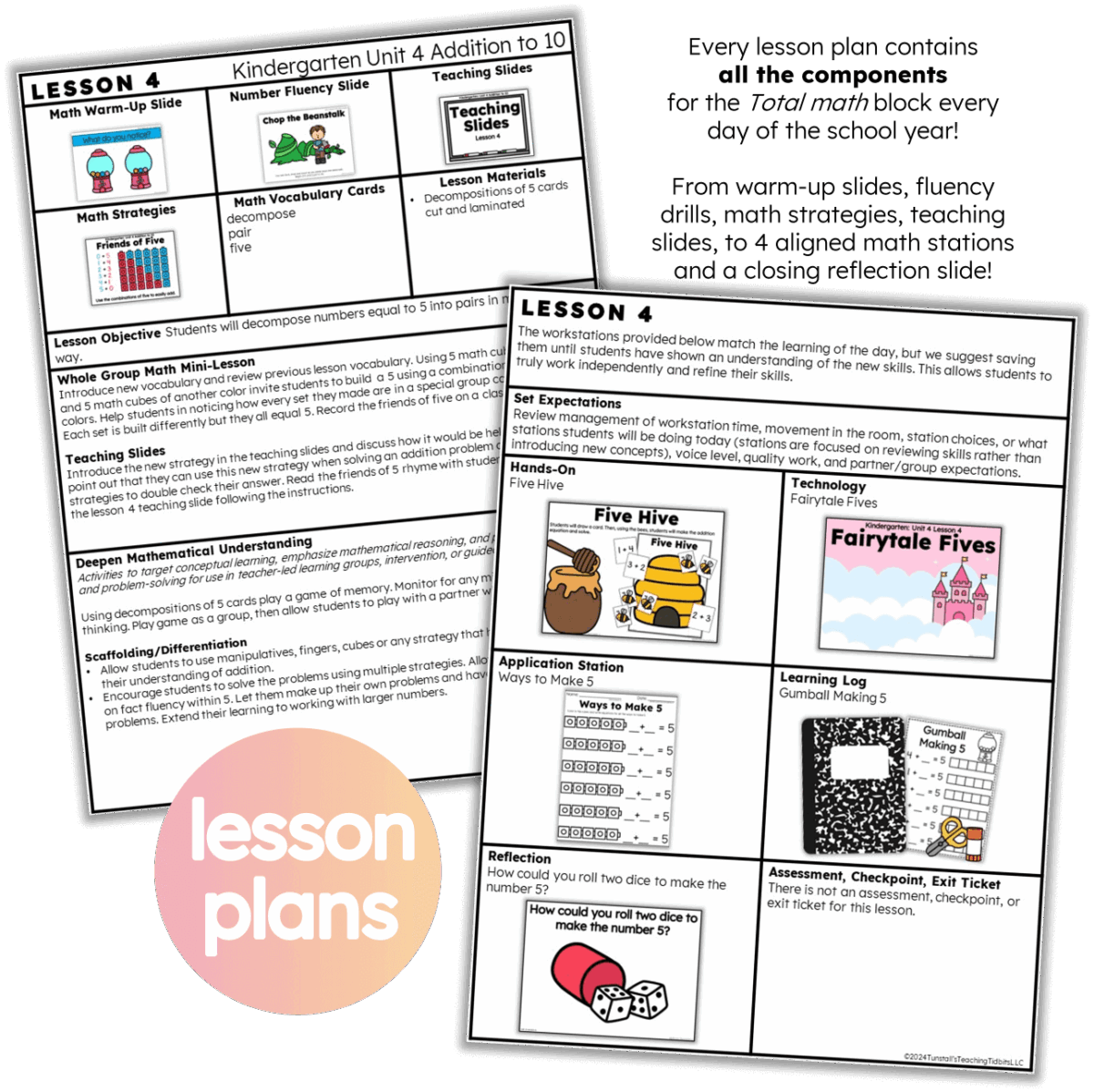
This all-in-one unit provides everything you need to teach addition facts to 10, whether you’re looking for whole-group instruction, small-group support, or independent practice. We packed so many options into every unit to provide a well-rounded math experience no matter how you design your math block.
Rather than feeling pressure to use everything, we hope this inspires the joy of teaching math in the way you, the classroom expert, knows is best for the students in the room!
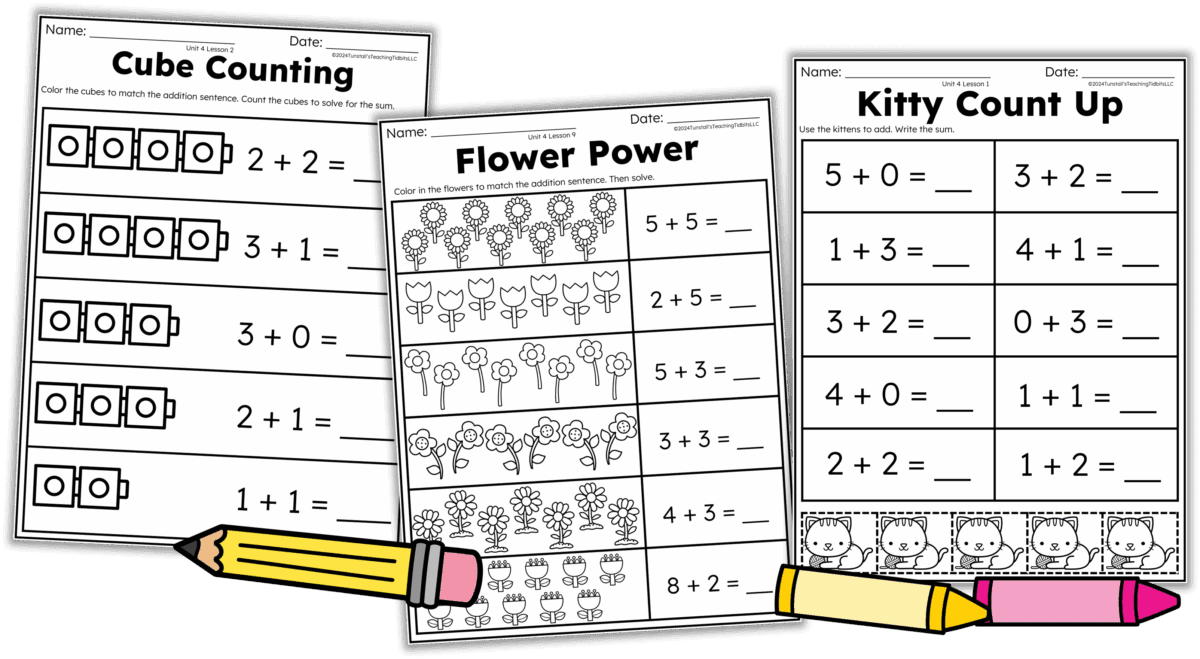
Each component below can be used to supplement any curriculum or the all-in-one Addition to 10 Unit provides everything you need to teach addition facts to 10.
Here’s what’s included in every daily lesson:
Warm-Up Slides to spark math talk and activate prior knowledge.
- Number Fluency Drills to practice skip counting and fluency
Math Vocabulary & Strategy Visuals to support understanding
- Interactive Teaching Slides for engaging whole-group instruction.
- Teacher-Led Learning Activities that are differentiated for every level.
- Hands-On Math Stations organized through the T.O.T.A.L. framework.
- Technology Games that are Google Classroom ready.
- Application Station for independent practice.
- Learning Log Pages for math journaling and reflection.
- Daily Lesson Reflection Slides to close out the learning and check understanding
- Exit Tickets & Assessments for easy progress monitoring.
Every component is designed to work together seamlessly, so you can focus on teaching instead of piecing together activities from multiple sources.
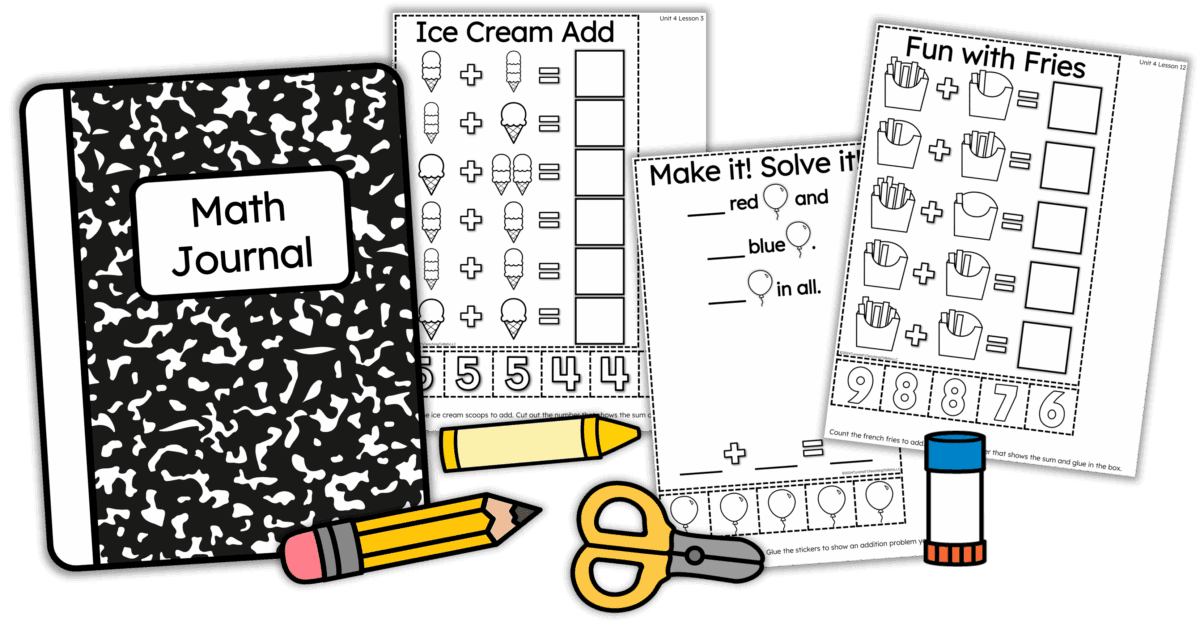
Why Teachers Love It
It’s comprehensive. Every part of your math block is covered, from warm-up to reflection.
It’s flexible. Use it for your core instruction or as a supplement to your existing math program.
It’s research-based. The structure and strategies have been piloted and adopted in districts nationwide.
It saves time. Everything is prepped and ready to go, no more searching for “just one more activity.”
If you’re ready to simplify your planning while making math more meaningful for your students, the Addition to 10 Kindergarten Unit is the perfect place to start.
Final Thoughts
Teaching addition to 10 is a big step in kindergarten, but with the right tools and routines, it becomes one of the most rewarding parts of the year. By giving students daily opportunities to explore, model, and practice number combinations, you’re helping them build the strong foundation they’ll need for all future math learning.
Find out more about Math Routines that Really Work!
Find K–2 math workshop routines that work from whole-group to centers to small-group instruction. I’ll also link to grade-specific posts for kindergarten, 1st grade, and 2nd grade, so you can dive deeper into the routines that fit your classroom best.
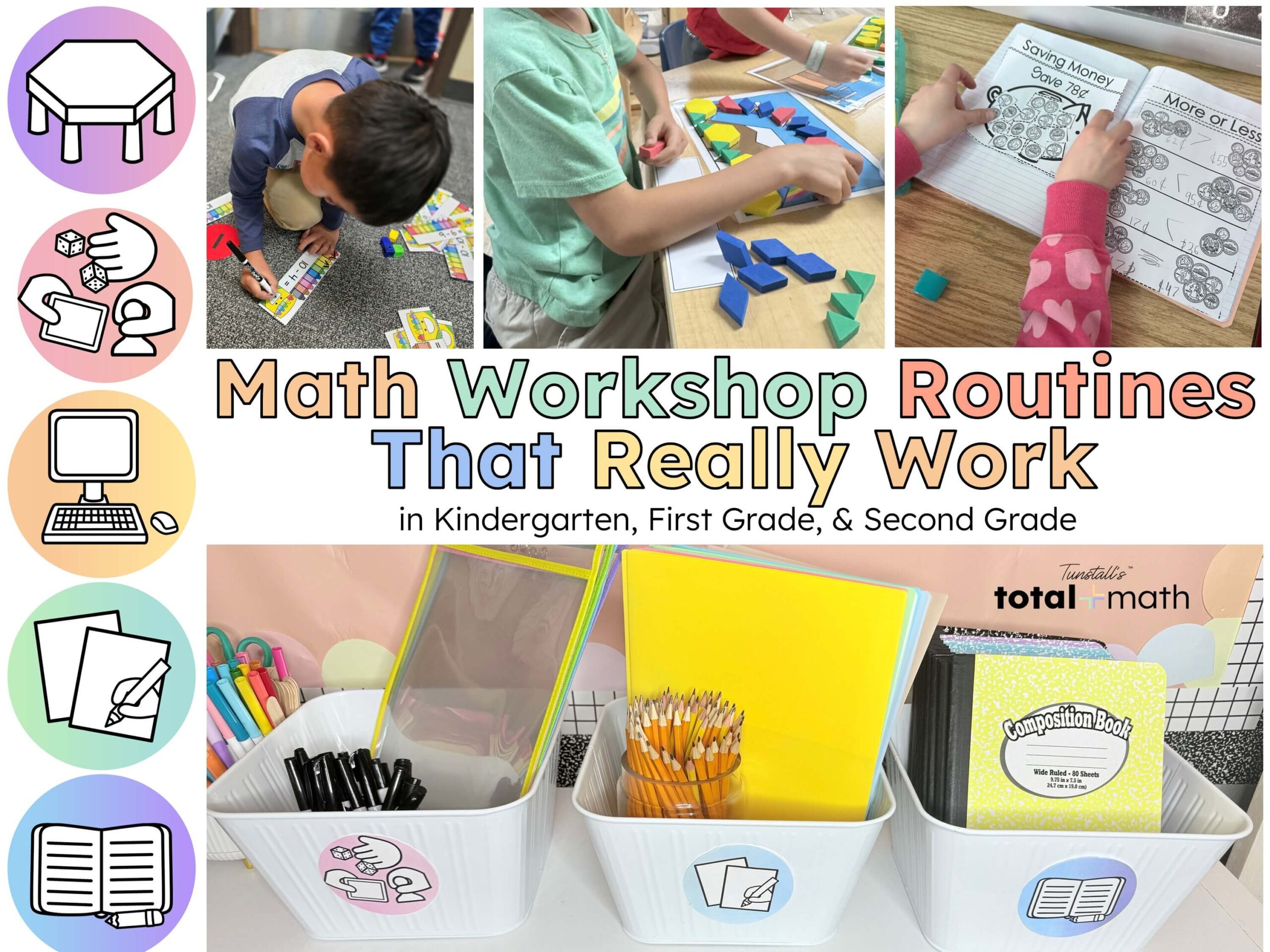

 Contact Us
Contact Us